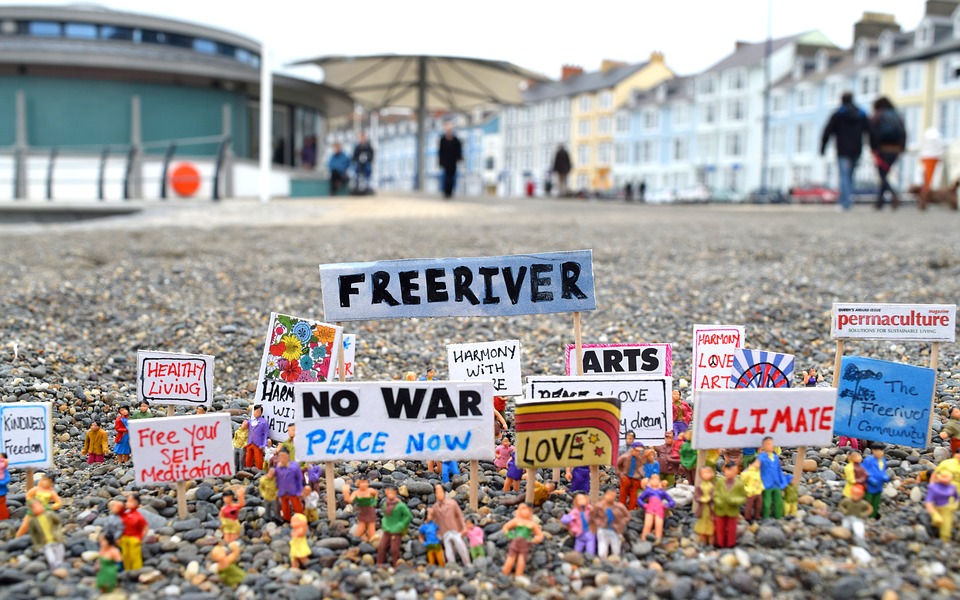
Written by Cosimo & Zoe (EST Ambassadors to the United Kingdom)
The British people and EU residents in the country are living through times of unparalleled uncertainty and mayhem. After a marathon of votes in the House of Commons between the 12th and 14th of March on the deal negotiated by Theresa May and alternatives routes, no outcome has effectively been produced beyond the clear rejection by Parliament of the deal as well as no-deal scenario. At first, the Prime Minister’s Withdrawal Agreement was defeated a second time in a meaningful vote by 149 votes. Afterward, an amendment on avoiding to leave the European Union without a deal was approved by a rumbling House of Commons.
This adoption was indeed remarkable in many ways. Firstly, the Tory Party and other MPs supporting the government were urged to vote against the motion to keep the no-deal possibility on the negotiation table. Nevertheless, the amendment passed by 321 to 278 votes, which revealed once again the level of divisions and spreading anarchy among the ranks of the ruling party. In other circumstances, voting against the instructions of the PM by government members would have most likely resulted in immediate expulsion. Not least the resignation of the PM herself after two bruising defeats on her deal. Yet, this is a testament of how exceptional these times are. It is remarkable how Brexit challenges even long-established party conventions and redefines British politics in its most traditional and defining traits.
Secondly, Parliamentary motions are not legally binding for the government, which means that although a no-deal scenario has been ruled out, it still requires legislative action. While some perceive the morale pressure on the government to abide by the motion as insurmountable, Brexiteers refer to the fact that this motion has in fact not changed the status quo. As Jacob Rees-Mogg, Chairman of the European Research Group, stated: “The Withdrawal Act means that we leave on the 29th of March under UK Law […] This vote is very interesting, and the Government may or may not pay attention to it, but it is not binding, it is not law.” Thus, the scope of the motion and the chances of no-deal are still open for discussion despite the vote.
However, given the fast-approaching Brexit default date, MPs finally voted with a majority of 412 to 202 votes to ask the EU to delay Brexit. Upfront, the EU negotiator Michel Barnier already commented: “What we need to move ahead is not a negative vote against no-deal. We need a constructive and positive vote.” In effect, the British Parliament has held negative votes only: no negotiated Withdrawal Agreement, no no-deal Brexit (at least morally binding), a second referendum was decisively rejected in a vote before finally Parliament voted to not have Brexit on the 29th of March. Along these lines, the European Council was reluctant at its meeting in Brussels to grant the United Kingdom further concessions. Patience in Brussels and the European capitals is wearing dangerously thin, and there is very little appetite for more Brexit talks. It was the British PM’s inability to provide clarity over what would happen next in case her deal is voted down a third time, that compelled the Council to adopt a more decisive stance. By rejecting May’s initial request of a “technical extension” until end of June, hence past the European elections in May, the EU27 leaders decided that an extension will be granted until May 22nd only if the deal is passed by Parliament next week. If the Commons rejects the deal for a third time, as parliamentary arithmetics seem to suggest, the UK would have to propose an alternative way forward before 12th of April.
In sum, the whole country is potentially only an inch away from the most significant political, social and economic disruption, with no-one in sight at the helm. Just in the past few weeks, it has been reported that more than half of Cabinet is encouraging the PM to give way to a successor. An unnamed senior Cabinet minister said that PM Theresa May may have as few as ten days left in office. Faced with this looming uncertainty and the prospect of potentially another General Election, the British people are actively expressing their concerns. A petition to revoke Article 50 and remain in the EU has gained over 5 Million supporters and counting, far past the 100 thousand-signatures threshold required for Parliament to debate it.
Likewise, it took over a Million people to the streets on Saturday the 23rd of March to participate at the ‘People’s Vote March’. Arguing that people did not vote for the current deal on offer in the 2016 referendum, supporters of the People’s Vote see a second referendum as the only solution to a crisis that threatens their living standards, businesses and jobs. Will it be enough to break the deadlock? It is hard to predict, as Brexit has harshly taught us time and time again. Now that the PM appears unwilling to even present her deal once again lest of a defeat, all options are back on the table. Surely, no outcome, not even remaining in the EU, will be enough to return to a state of quasi-normalcy in Westminster.
References
https://www.ft.com/content/7d119ff8-4675-11e9-a965-23d669740bfb

 The ’Ndrangheta’s Infiltration and Threat to European Institutions
The ’Ndrangheta’s Infiltration and Threat to European Institutions  From Paper to Practice: How Grassroots Norms Undermine Gender Rights in Pakistan
From Paper to Practice: How Grassroots Norms Undermine Gender Rights in Pakistan  Exploited Childhoods: The Role of Global Corporations in Perpetuating and Mitigating Child Labour
Exploited Childhoods: The Role of Global Corporations in Perpetuating and Mitigating Child Labour  Human Rights Challenges in Addressing SLAPPs in Media, NGOs and Journalism in the EU
Human Rights Challenges in Addressing SLAPPs in Media, NGOs and Journalism in the EU 

